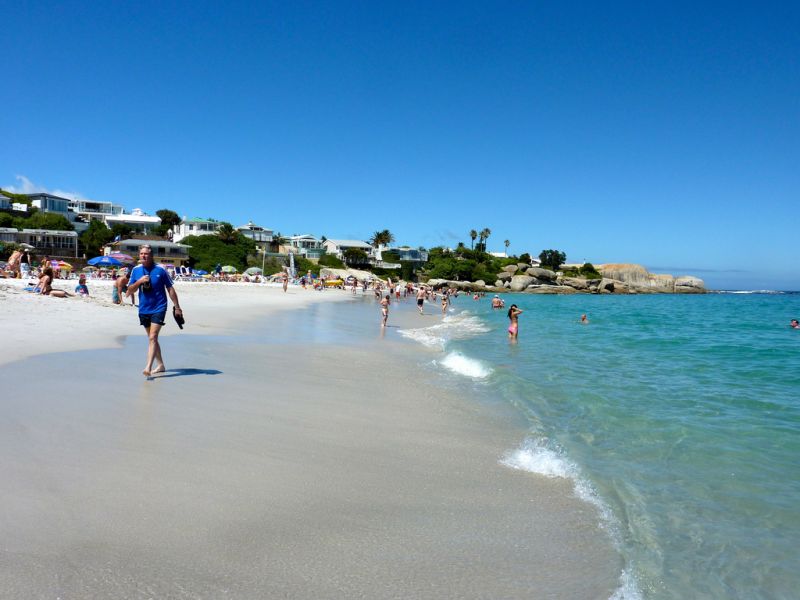Beachgoers have been advised to observe more precaution when visiting the city’s beaches, after a recent study reportedly uncovered high levels of E-coli at the popular Fourth Beach in Clifton. The warning comes at a particularly busy period for Cape Town’s beaches, as tourists and school students flock to the waters during the holiday period.
The study was conducted by Edda Weimann, a professor of paediatrics at the University of Cape Town (UCT), as well as a public health specialist. Upon a visit to the popular Blue Flag beach, she said she had noted something ‘odd’ about the water. Despite this, a board in the vicinity indicated that a previous analysis of the water, conducted several days prior, found the water quality to be fine. Having then conducted the study, she found this analysis to be in contradiction to her own findings.
“I asked myself, can I really trust that Blue Flag status. I had the idea to run (the study) to examine the fluctuations of water quality. I just ran a short case study, and when I analyzed the results and put that in connection with the Blue Flag beach framework, I really thought it was of public interest,” she explained.
Water analyses at Blue Flag beaches are usually monitored every two weeks. But with the study uncovering that water quality was prone to rapid changes, there was a huge likelihood that E-coli was going undetected because of the duration between tests.
“Even if you do have that data in the lab, it still takes another two or three days just to put it on that board. Even that data is in a way outdated,” she said.
With sewage pipes a mere 1.8km off shore, Weimann suspected this may have led to the worsening quality of water at the city’s beaches.
“The water is just not filtered. Bigger particles are taken out but all the germs and chemicals are staying in the water,” she said.
The study also noted the impact poor water quality had on the marine life near some of the beaches. In a similar analysis conducted at a beach in Hermanus, poor water quality was reported to have been directly related to the deaths of several seals beached in the area.
Amongst Weimann’s main concerns was the health of small children and elderly people, as their immune systems would be more susceptible to picking up disease. Despite the current predicament, she suggested the most feasible solution would be an improvement in the levels of water waste treatment.
“I think it is fair to tell people that they might be taking a risk. They can take precaution by just watching the water more carefully, just considering what they eat, and considering what they do with their litter and dump,” she said.
The City of Cape Town’s mayco member for Health, Benedicta van Minnen, has however rubbished the claims of E-coli calling them alarmist and sensational, and suggesting the findings are out of date. VOC (Mubeen Banderker)






 WhatsApp us
WhatsApp us 

